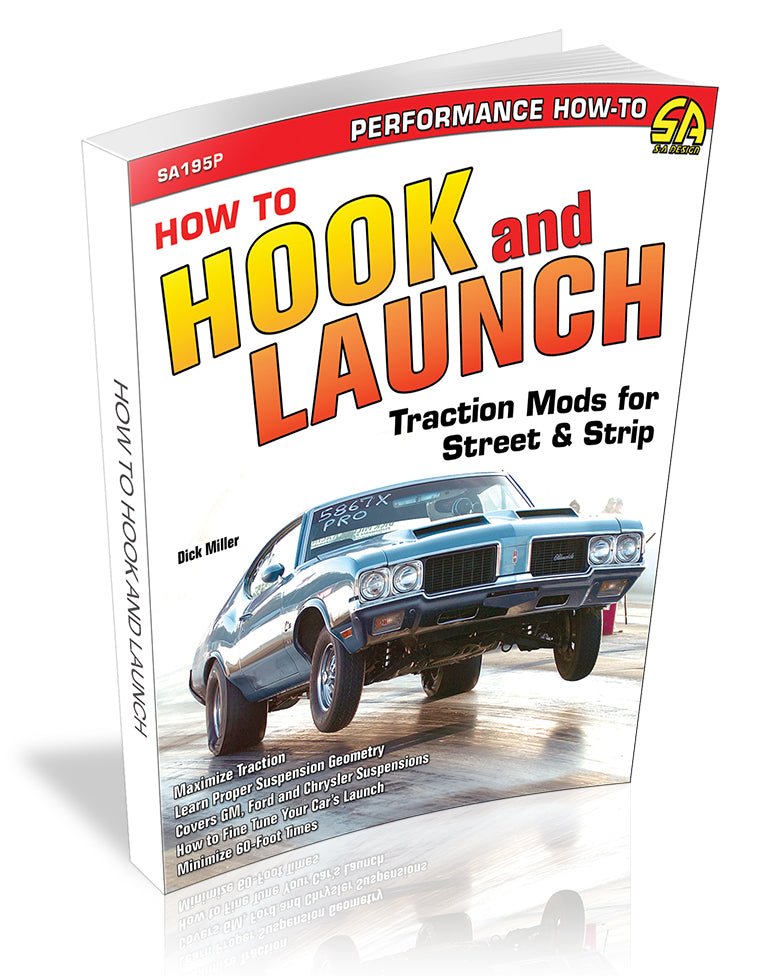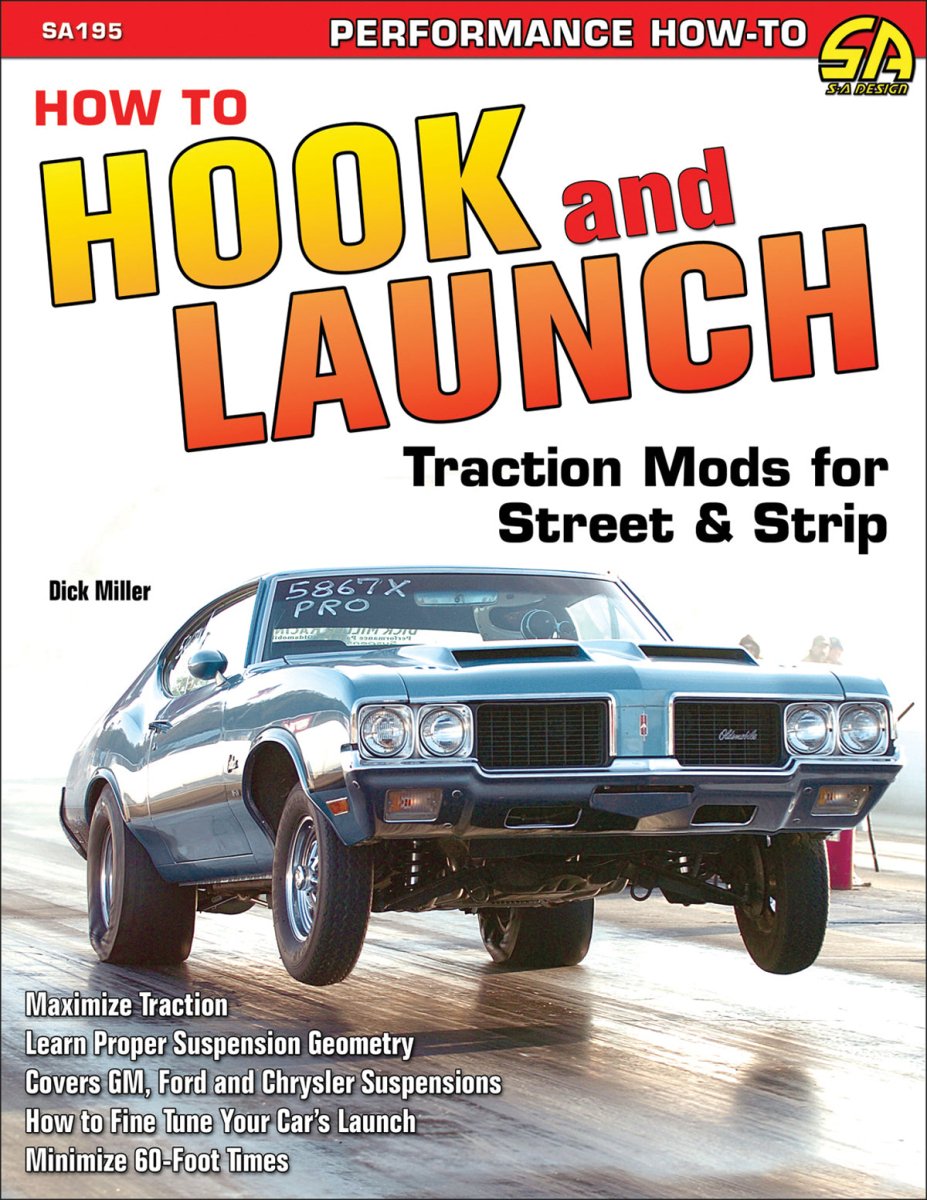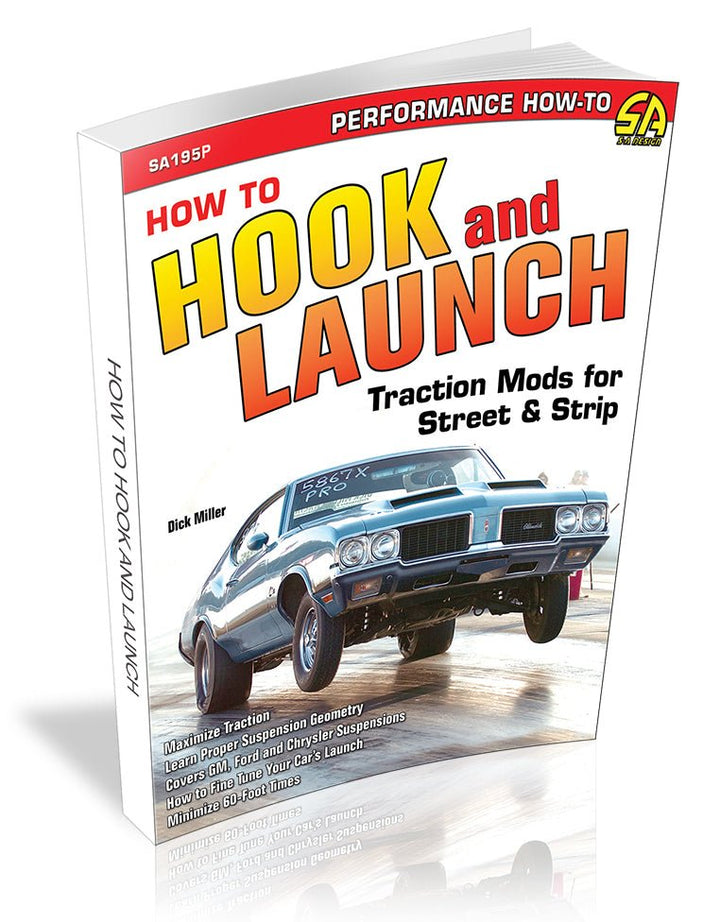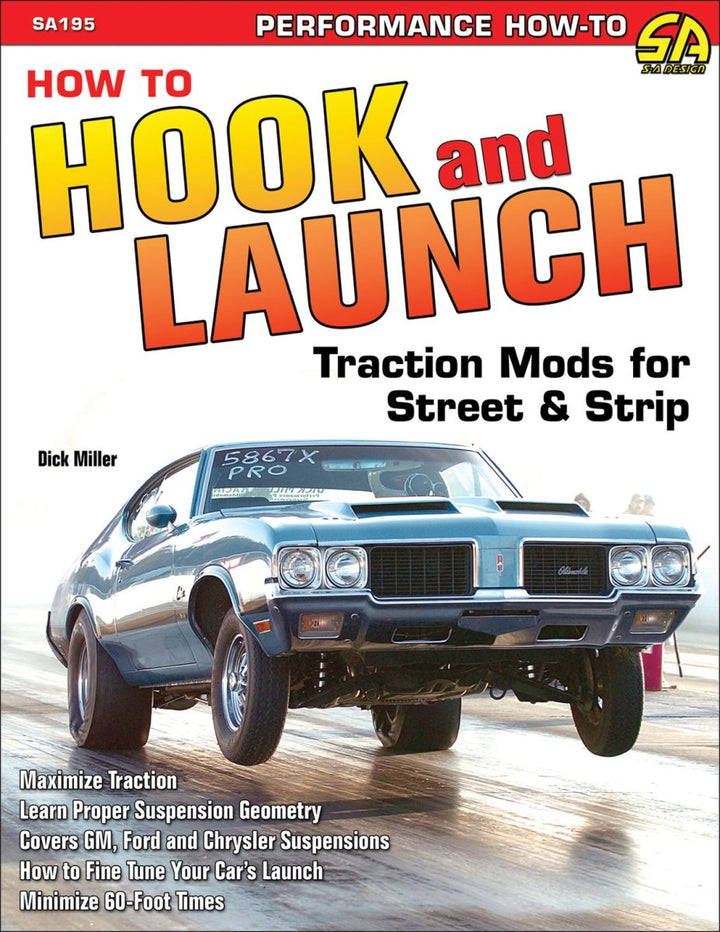The photos in this edition are black and white.
While building big horsepower has become easier, putting that power down to the pavement is still quite a challenge. Getting great "bite" involves a lot more than sticky tires and a smoky burnout. The suspension system is being put to work in a way it was never designed to operate. A better understanding of exactly what is happening to the suspension when the car launches from a standing start will assist you in maximizing your car's effectiveness on the street or at the track.
In How to Hook and Launch: Traction Mods for the Street & Strip, author Dick Miller explains the physics behind what gets a car moving from a standing start, and how to best harness the various powers at work. Getting the rear tires to really bite and gain maximum traction is divided into several small steps, and Miller walks you through each phase of the launch.
Today's enthusiasts face a wide range of potential traction improvements, from softer tires and basic bolt-ons to complete or partial chassis replacements. Most opt for something in-between, where some well-engineered components are chosen to replace the factory equipment and offer a greater capability and range of adjustment. It is this range of upgrades where Miller spends most of his time, explaining what the parts and pieces do, and how to use them to their highest potential.
Acknowledgments
About the Author
Introduction
Chapter 1: Suspension Basics and Drag Racing Dynamics
For Every Action There is a Reaction
Shock Absorbers
Chapter 2: Rear Suspension: Leaf Springs
Pinion Angle
Preload and Spring Wrap
Rise or Squat
The Neutral Line
Ladder Bars
Subframe Connectors
Calvert Leaves
Chapter 3: Rear Suspension: Coil Springs and Three-Link
The Neutral Line
Preload
Pinion Angle
Bushings
Lower Control Arms
Scale Procedure
Chapter 4: Rear Suspension: Coil Springs and Four-Link
Basic Design
Bushing Replacement
Control Arm Upgrades
No-Hop Bars
Track Locators
Control Arm Adjustments
Setting Preload
Adjusting Preload
Chapter 5: Front Suspension: Straight Axles
The Basics
Gasser Era
Steering Styles
Bump Steer
Front Tires
Chapter 6: Front Suspension: Double A-Arm
Alignment
Sway bars
Sway Bars versus Anti-Roll Bars
Shocks
Spring Selection
Chapter 7: Front Suspension: Single A-Arm
Alignment
Sway Bars
Aftermarket Struts
Bracing
Coil-Overs, Struts, Springs, K-Members
Chapter 8: Front Suspension: Torsion Bars
Basic Design
Performance Upgrades
Drag Tuning
Shock Absorbers
Weight Loss
Subframe Connectors
Bars and Cages
Bushings
Tubular Arms
Chapter 9: Tires
Offset Axle Housings
Rubber Compounds
Wheel Screws
Tire Care
Mounting Advice
Street Tire Comparison
Drag Radial Advice
Tire Storage
Pressure and Wear
Sample Applications
Chapter 10: Fine-Tuning Suspension for Maximum Traction
Shooting Video
Having the Right Torque Converter
Adjusting Pinion Angle
Adjusting Chassis Preload with Rear Coil Springs
Adjusting Chassis Preload with Rear Leaf Springs
Adjusting Rear Rise or Squat
Adjusting Anti-Roll Bars
Adjusting Front and Rear Tire Pressure and Diameter
Scaling a Car
Chapter 11: Making a Pass
The Burnout
Street Tires
Reaction Time
Mechanical Snafus
The First 60 Feet
Starting-Line Ratio
Dissecting The Run
Comparing Runs
Chapter 12: Suggestions for a More Consistent and Winning Car
Tall Tires
Power Saving
Shifter Style
Transmission Brake
Weather Stations
2-Speed vs. 3-Speed
Data Records
Ignition System and RPM Limiters
Source Guide





